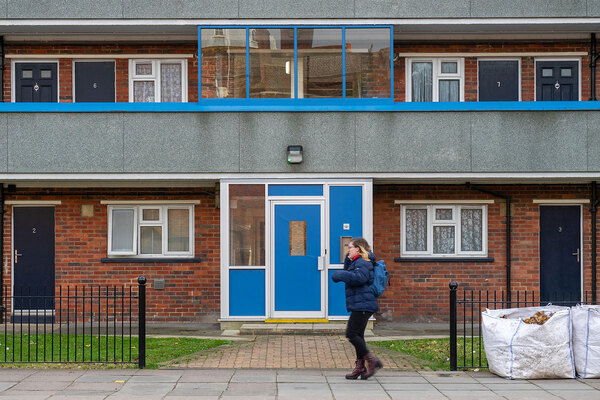You are viewing 1 of your 1 free articles
SHPS deficit drops by 55% to lowest level in more than a decade
The deficit of the Social Housing Pension Scheme (SHPS) has dropped by £870m since its previous valuation, falling to its lowest level since 2008.
This equates to a reduction in the deficit of over 55%, taking it from £1.6bn to £690m.
The SHPS is run by TPT Retirement Solutions, the pensions provider, and around 65,000 employees from the social housing sector are enrolled in the scheme.
Because the fund is ahead of target, deficit contributions being paid into the scheme by employers via a recovery plan will reduce by 12% from April 2025.
As well as deficit contributions being lower, they will also increase at the lower rate of 2% per year, down from 5.5%, TPT said. The recovery plan end date remains 31 March 2028.
Analysis from pensions advisor LCP suggests 94% of employers will see a “modest” reduction in their deficit contributions up to March 2028.
“There has been a significant reduction in the cost of new benefits being earned, with total cost reducing in some cases by as much as 60%,” LCP said.
The defined benefit scheme was valued on 30 September 2023 and has gone through a consultation process since then with representatives from housing sector organisations and the SHPS scheme committee, which acts on behalf of the scheme’s trustee.
Previously valued in 2020, the SHPS has benefited from changes in market conditions since then, “mainly driven by the scheme’s investment strategy and contributions from employers”, TPT said.
Mike Richardson, head of the social housing practice at LCP, said the results were “clearly positive news for housing associations”, but they would have to think about what to do with the savings.
“Changes at this level are pretty much unprecedented, and employers will need to carefully consider how the reduction should be shared,” Mr Richardson said.
“Another important consideration will be consistency with benefits being provided to other members of staff and ensuring that any perceived unfairness can be identified and addressed.”
LCP added that the aggregate cost of exiting SHPS has reduced from almost £5bn three years ago to less than £1.5bn in September 2023.
“We estimate it has continued to reduce since. This is a key change that presents opportunities for employers in SHPS,” LCP said. It predicts that more housing associations will leave, given the reduction in exit debts.
Several housing associations have left SHPS over the past few years. Pobl, Wales’s largest housing association, became the latest landlord to leave, exiting in February this year.
Notting Hill Genesis, One Housing, the Guinness Partnership and Moat have also left the scheme.
Richard Soldan, who leads the not-for-profit practice at LCP, added that there was a “particular issue for employers who offer the career average revalued earnings [Care] 120ths section to current employees”.
This is a defined benefit section that is based on a member’s average salary over their career, which sees them earning a 120th of their average salary each year.
Because of the increase in long-term interest rates since 2020, the cost of the Care 120ths section no longer meets the minimum level of pension that employers must provide.
The SHPS is now suspending the benefit from April 2025 for at least three years.
“Any employers currently using that section will have to make an active decision about what benefits to offer instead,” Mr Soldan said.
The sector is also awaiting the outcome of the benefit review by TPT and a High Court case that could see millions added to SHPS liabilities.
Sign up for our development and finance newsletter
Already have an account? Click here to manage your newsletters












